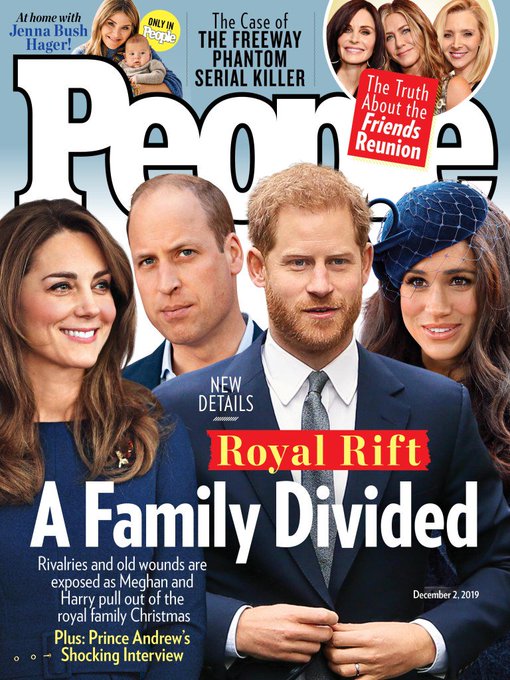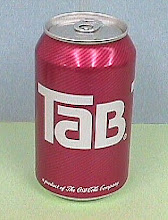
It's a royal cover again this week, claiming to have "new details" about the so-called royal rift, although as far as I can tell what's going on is less a "rift" and more a manifestation of the fact that William and Harry have grown up, gotten married and are now following different paths in life, all of which was inevitable and predictable. In particular, William's position as the future king means his life will always be different from Harry's, increasingly so as we move ever closer to the day when Charles becomes King and William becomes the Prince of Wales.
There's also the clickbait factor. Everyone is happy and getting along? Boring. A rift between William and Harry? Clickbait. Kate and Meghan hate each other? Clickbait. Prince Andrew screwed up and got fired? Oops, that's not clickbait. Just a few hours after this cover was posted at People.com Wednesday morning, a much juicier royal story exploded:
Breaking news: A statement issued by the Duke of York who will be stepping down from public duties for the “foreseeable future”. pic.twitter.com/icSTLIiY5Z— Victoria Arbiter (@victoriaarbiter) November 20, 2019
After years successfully shrugging off questions about his judgement, his business relationships and, more seriously, his association with the sex offender Jeffrey Epstein, Prince Andrew was finally undone not by a newspaper headline or a law enforcement agency, but by a woman called Sue from Leeds.
It was Sue – surname as yet unknown – who submitted a question to ITV’s leaders’ debate on Monday, asking: “Is the monarchy fit for purpose?” Julie Etchingham, chairing the debate between Jeremy Corbyn and Boris Johnson, put the question to the two party leaders, asking for their answers “in as few words as possible, perhaps even a yes or no”.
And with that, the Guardian has learned, the fate of the Duke of York was sealed. It was one thing for newspaper commentators and Twitter observers, in the wake of Andrew’s calamitous interview on Saturday with BBC Newsnight, to savage the prince’s performance, even to describe his position as untenable.
But the moment the value of the monarchy itself was being challenged in a general election debate was the point when Buckingham Palace and the rest of the royal family could stand by no longer. The debate question became the critical tipping point when it was finally clear the Duke of York had to be jettisoned.
On Tuesday, as companies, universities and charities rushed to distance themselves from the prince and his charitable activities, Andrew was summoned to meet his mother, the Queen, at Buckingham Palace, and was told in no uncertain terms that his role as an active, publicly funded royal was over “for the foreseeable future”.
He was permitted to issue the statement in his own name, maintaining the fiction that he had requested the demotion himself – a shaming instance of the royal crest appearing above the name of a sex offender, since Epstein was named in the statement. But no informed observer believes this was something that the prince either wanted or will have submitted to willingly.
By the following day, the palace was rowing back somewhat, saying he would continue in his association with the business mentoring initiative Pitch@Palace, though would do so as a private individual. Quite how an organisation which explicitly trades on the prince’s royal residences can be operated as a private enterprise is something which, palace insiders concede, has yet to be worked out. One suggestion being considered is that rooms might be hired in palaces – such as Blenheim or Eltham – which are not owned by the Crown.
Even as scrutiny of the prince’s actions has intensified following Epstein’s death in August and a wave of further allegations against the billionaire, he saw no reason to scale back his activities.
Within the royal household’s army of more than 1,000 staff, the prince has been building up a mini fiefdom which had been planning as recently as last week to take on new employees to help drive forward his focus on technology.
The office is still advertising a role for a project assistant with a background in technology to work on his Inspiring Digital Enterprise Award (iDEA) initiative, which has now been thrown into doubt after BT said it was reviewing its involvement. The prince’s office have also been looking for designers in recent weeks to work on the same brief.
The new hires would join what is described as a “dedicated team of professionals” who manage the prince’s official programme and initiatives. Central to the team has been his private secretary, Amanda Thirsk, a former banker who joined Andrew’s office in 2012. While she has been blamed for being the driving force behind the Newsnight interview, his office also includes Kerensa Jennings, a veteran of the BBC and ITN, who was also a Sky News producer.
The prince’s confidence in his position may lie in part with the way he has been indulged in the past. In March 2011, as controversy over Andrew’s association with Epstein swirled, prompting questions in parliament over his suitability as a British trade envoy, the Queen responded by awarding her second son a knight grand cross of the Royal Victorian Order, the highest possible honour for “personal service” to the monarch.
“You have to remember, Andrew was born in 1960 and was the second in line to the throne after his brother for 22 years, until the birth of Prince William,” notes Ingrid Seward, the royal observer and editor-in-chief of Majesty magazine. “That’s a long time to be a pampered favourite child and a prince and a war hero. And I think he slightly got it into his head that he could do what he liked.”
His abrupt removal from public life is not an indication of the Queen’s waning affection, observers say, but the reality of where power increasingly lies inside the household.
“He was sacked and he didn’t go willingly,” says Peter Hunt, the former BBC royal correspondent, “and even though the Queen will have handed him the royal equivalent of a P45, the form was filled out by Prince Charles. I see Charles as absolutely the driving force behind it.”
Palace protocol may insist that the Queen was making all the significant decisions, notes Hunt, but with the monarch now 93, Charles is effectively the “shadow king”. “She would not have done this by herself, and the fact that it has happened is a very clear sign that that inexorable shift in power which started about two years ago is continuing at pace.” Regardless of the fact that he is currently touring New Zealand with his wife, “Charles would have absolutely have been front and centre in that decision.”
“Fundamentally, Prince Andrew was toxifying the House of Windsor, and their desperate, desperate hope is that that toxicity will reduce over time. But they are not in control of events, that is the crucial thing.”
In an article this morning, CNN provides more context:
"Many people's judgment has been called into question over this, not least the Queen for allowing the interview to take place," says [royal commentator Peter] Hunt.
The interview could not have taken place without the monarch's permission, Hunt said. "She will been told about the interview, will have agreed to the interview and her great misstep and her misjudgment was to allow it to happen and to be filmed inside Buckingham Palace. And inside the palace you had Prince Andrew talking about the actions of a pedophile."
Everything that happens now is designed to protect the Queen. Andrew is still her son, the blood bond is unbreakable, but his actions have undermined her, and she had no option to withdraw her professional support for him. A sovereign's primary duty is to leave the crown in a stronger state than when they received it, and Andrew had created a dent.
The Queen only wears the crown by virtue of her majority support in Parliament, which is the only body with the authority to remove it. That's where Andrew created a vulnerability for her and it became apparent in another TV moment this week.
During the first general election leaders debate on ITV, Prime Minister Boris Johnson and his main opponent, Labour leader Jeremy Corbyn, were asked if the monarchy was "fit for purpose." That would have been enough to prompt gasps within Buckingham Palace -- without even hearing the answer.
"The sacking of Prince Andrew, as it is, is unprecedented. We have to go back to the abdication of Prince Edward VIII in 1936 to see anything vaguely comparable," said Hunt.
"The position of the monarch is now up for question in 2019 which it wouldn't have been just a few weeks ago. It's being raised in debates during the British general election campaign. It's being raised in debates on phone-ins across the UK on British radio stations. That is pretty unusual and that is why the British monarchy has acted as it has done and acted so speedily in removing Prince Andrew from public life."
... If it is indeed the case that the Queen forced Prince Andrew to step aside, it is a decision that would have been taken in the spirit of her long reign which is always to put duty above all else. She's proved more times than she would care to remember that she can recover from a crisis. It's still a crown worth inheriting. (Read more here.)
In what is absolutely not a coincidence, saving a little face for Andrew and reinforcing the notion that the royal bond is indeed unbreakable, the prince was photographed out riding with the Queen today:

My final thought, at least for now: Season 3 of the Netflix series The Crown premiered last Sunday and I've now watched all 10 episodes. The season ended with the Queen's 25th anniversary Jubilee in 1977; Lady Diana Spencer is scheduled to show up in Season 4. This week's events, Prince Andrew's screw-up and subsequent defenestration, are far, far more interesting and dramatic than the Queen's efforts to improve her racehorse management, the attempted coup by Uncle Dickie and Prince Philip's midlife crisis, all of which are featured in season 3. The show's storytelling must, absolutely must, continue through November, 2019. Anything else would be a travesty.


No comments:
Post a Comment